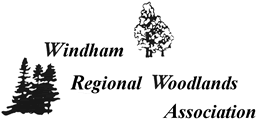“Invasive Earthworms: The Second Wave”
presented by SE VT CISMA
Wednesday, February 10 — 7:00pm
Pre-registration required:
https://us02web.zoom.us/meeting/register/tZAlf-quqTwrHt0ZI4-7uOeIE6yj–KelWIz
It is a long held belief that earthworms are good for soil. Gardeners are usually happy to find them because they aerate the soil and increase the availability of nutrients. While this may be true in your garden, it does not apply to all earthworms and not in all places. Most earthworms in our neck of the woods, or crannies of our gardens are exotic species. That is because the last ice age has extirpated earthworms in the Northeast. The main concern is that invasive earthworms disturb our native ecosystems that developed in their absence. Forests are most affected. The first earthworms arriving in the Northeast came hundreds of years ago with the first settlers. Now we are in the middle of a second wave of earthworm invasions. They further change forest soils and these worms are giving us a second look at how earthworms change our soils. Jumping worms (also known as snake or crazy worms) are aggressively invasive earthworms that has arrived from far eastern Asia. In our forests, they have the potential to dramatically change soil structure, impact forest ecology and reduce biodiversity. The verdict is still out about how they affect our gardens beyond the squirm factor.
Josef Gorres, a soils professor at the University of Vermont, will talk about this second wave of invasive earthworms and what is at stake for New England’s forests.
This program is being hosted by the Southeastern Vermont Cooperative Invasive Species Management Association (SE VT CISMA).
